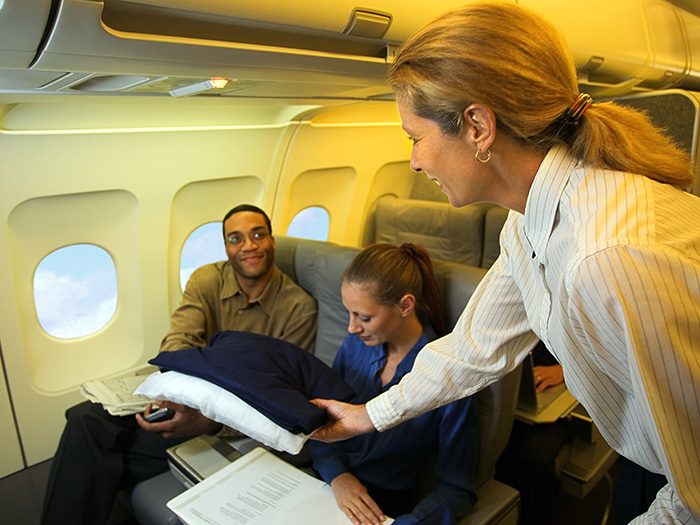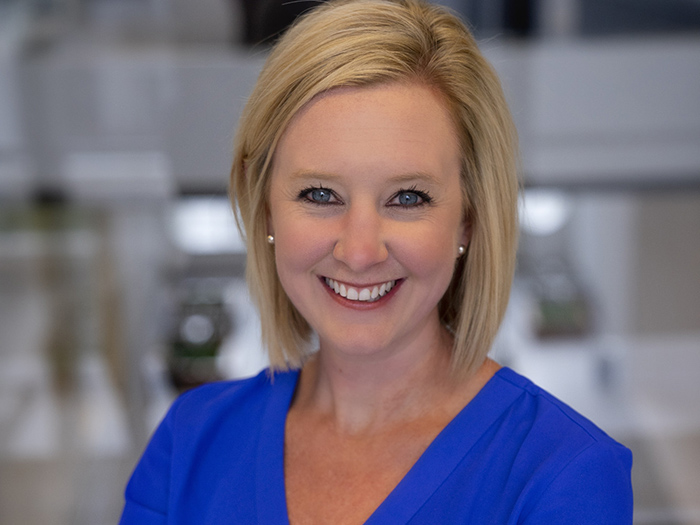Nurse Case Manager Chronicles
Flight Attendant to Nurse Case Manager: A Fulfilling Second Act

Second-career nurses may not have started their professional lives as case managers, but for some, it’s a deeply felt calling that’s worth the wait.
“When a nurse comes from a different background, [employers should] remember the nurse chose this. They are passionate. Organized,” said Genex nurse case manager Theresa Martin.
Such a decision isn’t as simple as choosing a college major; these nurses are well into an already-lucrative career. They might have a family to look after and a house to run.
“It’s not easy to make that choice, to go back to school in the middle of everything. [The nurses] who do it are well-rounded individuals. You have someone used to being a professional who doesn’t need a lot of mentoring.”
First Career Skills
Martin was a second-career nurse herself. She wanted to study nursing in her undergraduate years but was involved in extracurriculars that took up a lot of her time.
“I had always wanted to be a nurse, but I think I had the maturity at that age to know it would have to wait. I put nursing on the back burner.”
Instead, Martin became a flight attendant before joining the nursing workforce. There, she said, she learned how to organize herself and solve problems quickly. Having an argument on a plane can set passengers’ teeth on edge. Martin was the person who had to calm down passengers while solving their issues.
“As a flight attendant, I had to solve problems as they happened. We couldn’t land the plane. And you can’t have drama on a plane. You can’t ignore it.”
In nursing, she said, you have to think on your feet and utilize quick problem-solving skills just like on a plane.
The work may be different, but the skills behind each profession are the same. Martin works hard to know her claims inside and out; she’s readily available to answer any questions for the carrier, the adjuster, the worker or the employer; and she’s proficient at coming up with solutions on the spot.
When problems arise, Martin taps into the communication and interpersonal skills she learned early in her flight attendant career. So much so, she said, she uses these skills “every day, all day.”
“Case management is a surprise; you never really know how your day will be. No matter what you do, a million factors can enter into a claim. Everyone has to be on the same page.”
The Right Switch
Transitioning into nursing was hard, Martin said, “but not as hard as I thought it would be.”
She recalled one case in particular that solidified that career change for her.
A worker fell from a skylight to the first floor and was gravely hurt. He had multiple orthopedic injuries and multi-system failure, including his kidneys.
Martin was assigned his case and met with the worker’s father at the hospital.
“It was touch and go at first. The trauma surgeons were suggesting removing the worker from life support, and the father said it was a decision he felt he couldn’t make for his son,” she explained.
Martin sat down with the father and talked about the injured worker’s options.
“Case management is a surprise; you never really know how your day will be. No matter what you do, a million factors can enter into a claim. Everyone has to be on the same page.” — Theresa Martin, nurse case manager, Genex
She told him, “You don’t have to decide right now. Let the trauma team take care of him. Let the interventions [in place] happen.”
Martin explained that when a body falls from a tall height like the worker did, the body’s muscles will release proteins. This excess protein in the body can trigger organ failure. In the case of this worker, his kidneys began to fail, and the trauma team put him on aggressive kidney dialysis. The dialysis, Martin said, was one of the main interventions in place.
The worker’s father chose not to take his son off life support. The team gave the injured worker a few days to see where his progress landed. Slowly, he improved, woke up and began to gain back his strength.
From there, Martin worked to get the worker out of ICU and into rehab at a facility where she had already established connections early in her nursing career.
When the injured worker went back to work, Martin said this solidified her choice to become a nurse. “I felt like I was doing what God wanted me to do. It made me feel grateful to be in this profession, to be able to say, ‘you don’t have to decide right now,’ and give him options.
“It’s a lot, asking the family to trust you,” she said. “It was a catastrophic case, but we were able to get him back.”
One Woman’s Journey to Nursing
Martin grew up on a farm in Indiana and attended Purdue University because it was still close to home.
“I didn’t see much of the world then,” she said. So when presented with an opportunity to see the world at the age of 22, Martin took it. American Airlines was hosting a “casting call” for new flight attendants, and before Martin knew it, she was training to take flight.
It was her golden ticket: earning a wage while traveling at the same time. “I could see the whole world,” she said.
She enjoyed flight attending, but it was “never enough.” Then, in the 1990s, the airline workers went on strike.
Martin was a single mother and she knew she needed a more stable career if she was going to support her kids. She entered into a nursing program and graduated in 1998 at the top of her class — a feat that was no surprise to her. “Nursing had always been my passion.”
She started in med-surg, then entered neurology. Home care case management came next, and by that time, her kids were in middle school. She wanted a steady 9-to-5 position and took up telephonic workers’ comp case management for 10 years.
Now, as a case manager, Martin likes having that one-on-one contact with injured workers, their family, the adjuster and other parties on a claim.
“How do I turn it off?” she quipped. Martin said even on weekends or her days off, she’ll still take calls from her patients. “Case management is my passion. I do have to find the balance with my personal life, but I just really enjoy what I do.”
In fact, she loves nursing so much, she mentors young nurses entering the case management field. Many of them are stepping out of a hospital setting.
“When coming from a hospital setting, the young nurses need to learn how to organize their day,” said Martin. She related it back to her flight attendant duties: “First thing I would do is organize my cart. Drinks, ice, food. It was all set.
“Nursing is like that. You have to start your day by organizing it. Know what your duties are and prep for them.” &











